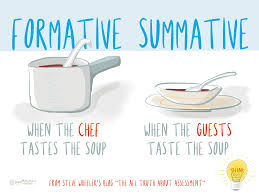Different methods for Active Learning:
- Group Discussion
- Jigsaw group
– split the students into 3 groups
– then give one task for each.
– Each group will discuss the task and become expert of that task (30
minutes).The members of each group will become an expert for each task.
– The member can go to other group and teach their expertise.
– Benefit: teach each other (remember well, develop communication skills)
- Jigsaw group
- Peer thinking
- Sticky/loose note – at the end of the class – let them point me – what they don’t understand. -à then next class – terangkan balik konsep yang diorang tak faham à masukkan dalam forum elearning
- Forum – discussion
let the students upload points (make sure bagi deadline) – engage dgn students – know how they respond
- markah forum ini saya akan ambil kira apabila anda berada di atas pagar.
- Bagi hadiah untuk setiap ‘forum congeniality’
- You want marks – then produce evidence/do something.
- Print forum – as an evidence to bagi hadiah or atas pagar for better grades.
Among other active learning strategies
1. Think-pair-share
2. Brainstorming
3. Execute activities using eLearning – next semester we can backup, copy and restore – then please do CQI for improvement.
4. Blank space at powerpoint – Von Risgoff Impact
5. Note check
6. Q&A
7. Two minutes paper – assessment.
8. One Minute paper – summarize the lesson today.

